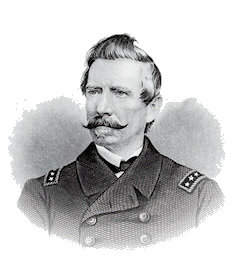Richmond, Va., Feb. 28th, 1861.
Dear Governor, I was dispatched from Montgomery under orders from the President so suddenly that I had not the opportunity of calling on my friends, yourself among the number, as I intended to do; so you must excuse me for my seeming remissness. As I shall not return for some two or three weeks the Departments will probably all be organized in my absence. I had an interview before I left with Mr. Memminger on the subject of the organisation of the Light House Establishment. I proposed to get rid of the cumbrous machinery of a Light House Board, which I found to be useless under the old Government, and to substitute therefor a Light House Bureau to be placed under a naval Captain. Mr. Memminger seemed to be favorably impressed with my idea and I suppose this form of organization will be adopted. If it be agreeable to Mr. Memminger and to the new Secretary of the Navy I should like to have the first charge of this Bureau—although I must confess I am not very fond of the confinement—merely for the purpose of giving form and shape to my bantling before it falls into inexperienced hands. A word from you would probably secure this object.
Remember me very kindly to Mr. Toombs and Mr. Stephens.
Letters addressed to me at Washington to the care of “Richard H. Clarke, Esq.,”[i] will be forwarded to me promptly.
[i] A lawyer in Washington, afterwards prominent in New York City.
From Annual Report of the American Historical Association for the Year 1911.
Raphael Semmes (September 27, 1809 – August 30, 1877) was an officer in the Confederate navy during the American Civil War. Until then, he had been a serving officer in the United States Navy from 1826 to 1860. During the American Civil War, Semmes was captain of the cruiser CSS Alabama, the most successful commerce raider in maritime history, taking 65 prizes. Late in the war, he was promoted to rear admiral and also acted briefly as a brigadier general in the Confederate States Army. His appointment or arrangement to act as a temporary brigadier general from April 5 to April 26, 1865, was never submitted to or officially confirmed by the Confederate Senate.
Howell Cobb was an American political figure. A southern Democrat, Cobb was a five-term member of the United States House of Representatives and Speaker of the House from 1849 to 1851. He also served as the 40th Governor of Georgia and as a Secretary of the Treasury under President James Buchanan. Cobb is, however, probably best known as one of the founders of the Confederacy, having served as the President of the Provisional Congress of the Confederate States.
